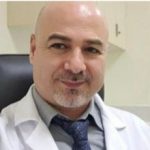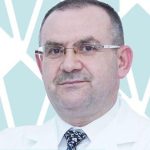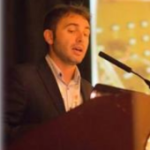Event Date
April 07-08, 2026
Venue
Barcelona, Spain
– Previous Conference Performers / Professionals From Around The Globe –
Media Partners/Collaborator
A huge thanks to all our amazing partners. We couldn’t have a conference without you!



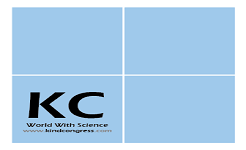



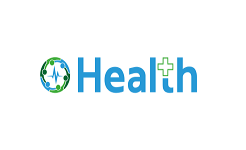


Sponsors/Exhibitors
A huge thanks to all our amazing partners. We couldn’t have a conference without you!


About the Conference
The 27th Edition of the International Conference and Expo on Addiction, Depression, and Anxiety will be held on April 07–08, 2026, in Barcelona, Spain . This distinguished global event brings together leading researchers, clinicians, psychologists, psychiatrists, social workers, academicians, and industry experts to share their insights and advancements in the fields of mental health, addiction science, and behavioural medicine.
Under the central theme “Advancing Mental Health Care through Innovation, Awareness, and Recovery,” the conference aims to foster interdisciplinary dialogue and collaboration to address the growing global challenges of addiction, depression, and anxiety disorders.
The conference is a unique blend of academic rigor and practical application. It will feature keynote speeches from world-renowned psychiatrists, scientists, and clinicians, as well as oral and poster presentations showcasing the latest findings. The interactive sessions, workshops, and panel discussions are designed to facilitate deep learning and meaningful networking. The conference serves as a vital forum for sharing groundbreaking research, exploring new treatment modalities, and discussing policy frameworks to combat the global burden of these disorders.
Conference Benefits
- Networking Opportunities: Connect with a diverse group of professionals, including psychiatrists, psychologists, therapists, researchers, and policymakers from around the world.
- Knowledge Exchange: Stay updated with the latest advancements and trends in addiction, depression, and anxiety research and treatment.
- Skill Development: Participate in workshops and interactive sessions to enhance your clinical and research skills.
- Global Collaboration: Foster new partnerships and collaborations for future research projects and initiatives.
- Visibility and Recognition: Present your research to an international audience, gain valuable feedback, and increase your professional visibility.
- Continuing Education: The conference provides an excellent opportunity for continuing professional development, helping you meet your career goals and stay current in your field.
- Inspiration and Motivation: Hear from influential leaders and be inspired by their journeys and contributions to the field of mental health.
Who Should Attend
This conference is essential for anyone involved in the diagnosis, treatment, and research of addiction, depression, and anxiety. This includes:
- Psychiatrists and Psychologists: To learn about the latest clinical practices and treatment innovations.
- Researchers and Scientists: To present their findings and collaborate with peers on new studies.
- Therapists and Counselors: To gain practical skills and new therapeutic techniques.
- Medical and Nursing Professionals: To understand the co-occurring physical and mental health issues associated with these disorders.
- Students and Academics: To gain exposure to a professional environment, learn from experts, and network with potential mentors.
- Policymakers and Public Health Professionals: To discuss the public health implications of these disorders and explore effective prevention and intervention strategies.
- Advocates and Community Leaders: To raise awareness and learn how to better support individuals and families affected by these conditions.
Conference Objective
The primary objective of the 27th Edition of the International Conference on Addiction, Depression and Anxiety is to create a dynamic platform for advancing the understanding and treatment of these prevalent mental health disorders. The conference aims to:
- Disseminate cutting-edge research and clinical innovations.
- Promote interdisciplinary collaboration among researchers and practitioners.
- Address the social stigma associated with mental health and addiction.
- Explore new therapeutic approaches, including pharmacological and psychological interventions.
- Discuss the impact of technology and digital tools on mental health care.
- Highlight the importance of integrated care for co-occurring disorders.
- Provide a supportive environment for professional development and networking.
Sessions and Tracks
- Neurobiology of Addiction: Explore the brain’s reward pathways, neurotransmitter systems, and genetic factors involved in the development of substance use disorders.
- Pharmacotherapy in Addiction: Discuss the latest medications and pharmacological strategies for treating opioid use disorder, alcoholism, and other addictions.
- Behavioral and Process Addictions: Focus on non-substance addictions like gambling, gaming, and internet addiction, examining their psychological mechanisms and treatment.
- Adolescent Substance Use: Address the unique challenges of addiction prevention and treatment in young people.
- Dual Diagnosis and Co-occurring Disorders: Examine the complex relationship between addiction and other mental health conditions like depression and anxiety, and discuss integrated treatment models.
- Depression and Anxiety Disorders: Present new research on the etiology, diagnosis, and classification of major depressive disorder, generalized anxiety disorder, and panic disorder.
- Cognitive Behavioral Therapy (CBT): A deep dive into CBT techniques for managing and treating depression, anxiety, and addictive behaviors.
- Mindfulness and Acceptance-Based Therapies: Explore the role of mindfulness and other third-wave CBT approaches in promoting mental wellness and recovery.
- Trauma and PTSD: Discuss the link between trauma, post-traumatic stress disorder, and the development of addiction and other mental health issues.
- Child and Adolescent Mental Health: Focus on the early detection and intervention of depression, anxiety, and behavioral disorders in children and teenagers.
- Geriatric Psychiatry: Address the specific mental health needs of older adults, including depression and addiction.
- Neuropsychiatry: Bridge the gap between neurology and psychiatry, focusing on brain disorders that manifest with psychiatric symptoms.
- Psychopharmacology and Novel Treatments: Review new medications and emerging treatments like ketamine, psychedelics, and transcranial magnetic stimulation (TMS).
- Digital Health and Tele-Psychiatry: Examine the use of mobile apps, online therapy platforms, and telehealth in expanding access to mental health care.
- Harm Reduction Strategies: Discuss public health policies and interventions aimed at reducing the negative consequences of substance use.
- Relapse Prevention and Recovery: Explore evidence-based strategies to prevent relapse and support long-term recovery.
- Family and Social Impact: Address the role of family dynamics, social support, and community resources in the recovery process.
- Psychotherapy and Counseling: Showcase diverse therapeutic modalities, including group therapy, motivational interviewing, and psychodynamic therapy.
- Eating Disorders and Body Image: Examine the relationship between eating disorders, depression, and anxiety.
- Suicide Prevention and Crisis Intervention: A critical session on identifying risk factors, intervention techniques, and creating supportive systems.
- Stigma and Advocacy: Discuss strategies to reduce the stigma surrounding mental illness and addiction and advocate for better care.
- Epidemiology and Public Health: Present global and regional data on the prevalence and impact of addiction, depression, and anxiety.
- Cross-Cultural Psychiatry: Explore how cultural factors influence the perception, manifestation, and treatment of mental health disorders.
- Professional Burnout and Self-Care: A crucial session for mental health professionals on managing stress and preventing burnout.
- Policy and Legal Frameworks: Discuss the legal and ethical considerations in addiction and mental health treatment.
Market Analysis
The global market for addiction and mental health treatment is experiencing significant growth, driven by increasing awareness, reduced stigma, and a rising prevalence of these disorders. The addiction treatment market, in particular, is projected to expand due to the opioid crisis and growing substance abuse globally. The depression and anxiety disorder market is also a major segment, with a strong demand for both pharmaceutical interventions and psychological therapies. Key drivers include rising stress levels, changing lifestyles, and a greater emphasis on mental wellness. The market is witnessing a shift toward personalized and integrated care models, which address co-occurring disorders more effectively. The adoption of digital health solutions, such as telemedicine and mental health apps, is a rapidly expanding sub-market, making care more accessible and affordable. This growth presents significant opportunities for new research, innovative therapies, and investment in public and private health initiatives aimed at improving mental health outcomes worldwide.
About the Venue
Barcelona, the dazzling capital of Catalonia in northeastern Spain, is a city where history, art, and modern life come together in perfect harmony. Situated along the Mediterranean coast, it offers an irresistible blend of cultural heritage, stunning architecture, delicious cuisine, and a relaxed seaside atmosphere that attracts millions of tourists every year. The city’s origins date back to Roman times, and traces of its ancient past can still be found today, particularly in the Gothic Quarter, or Barri Gòtic , where narrow, winding streets lead to hidden plazas, medieval buildings, and the majestic Barcelona Cathedral . This historic district captures the city’s old-world charm and contrasts beautifully with the wide boulevards and modern structures that define other parts of the city, such as the elegant Eixample district, known for its grid-like layout and impressive architectural gems.
Barcelona’s architectural beauty is best represented by the works of Antoni Gaudí , the visionary Catalan architect whose unique creations have become symbols of the city. His most famous masterpiece, the Basílica de la Sagrada Família , has been under construction since 1882 and remains one of the most extraordinary churches in the world. Its towering spires, intricate facades, and colorful stained-glass windows create an awe-inspiring experience for visitors. Gaudí’s influence can also be seen throughout the city in landmarks like Park Güell , a whimsical public park decorated with mosaics and organic shapes; Casa Batlló , known for its dragon-like roof and flowing lines; and Casa Milà (La Pedrera) , celebrated for its innovative stone façade and sculpted chimneys. Together, these works have earned Barcelona recognition as one of the world’s greatest architectural cities.
Another highlight of Barcelona is La Rambla , the lively tree-lined avenue that stretches from Plaça de Catalunya to the Port Vell waterfront. It is the heart of the city’s social life, filled with flower stalls, street performers, cafés, and shops. Along the way, visitors can explore the Mercat de la Boqueria , a colorful food market offering fresh produce, seafood, and local delicacies. Near the port stands the Christopher Columbus Monument , a tribute to the famous explorer who once set sail from Spain’s shores. Just a short walk away, the Barceloneta Beach area provides a sunny escape, perfect for swimming, sunbathing, and enjoying seafood by the sea. The nearby Port Olímpic marina, built for the 1992 Olympic Games, has become a popular spot for nightlife, dining, and sailing.
Culture thrives in every corner of Barcelona. Art lovers can visit the Picasso Museum , which houses one of the most extensive collections of Picasso’s early works, or the Fundació Joan Miró , dedicated to the surrealist artist’s colorful creations. For panoramic city views and cultural attractions, Montjuïc Hill is a must-see, home to the Magic Fountain , the National Art Museum of Catalonia (MNAC) , and the Montjuïc Castle . Festivals such as La Mercè and Sant Jordi’s Day showcase the city’s vibrant traditions, while Catalan cuisine—featuring tapas, paella, and crema catalana —adds flavor to every experience.
Barcelona’s blend of ancient charm, artistic brilliance, and seaside beauty makes it one of Europe’s most captivating destinations—a city that truly offers something for everyone.
Why Barcelona?
- Cultural Heritage: Discover the masterpieces of Antoni Gaudí , including the iconic Sagrada Família , Park Güell , and Casa Batlló .
- Beautiful Setting: Enjoy the scenic Mediterranean coastline, charming old quarters, and vibrant plazas filled with life and color.
- Accessibility: Barcelona is well-connected by international flights, with Barcelona–El Prat Airport (BCN) offering easy access from all major global destinations.
- Cuisine and Lifestyle: Experience exquisite Catalan cuisine, lively markets such as La Boqueria , and a unique blend of modernity and tradition.
- Networking in Style: The city’s blend of professional infrastructure and cultural diversity creates an inspiring environment for meaningful discussions and collaborations.
– Tracks & Key Topics –
- Neurobiology of Addiction and Depression
- Genetic and Epigenetic Factors
- Dopamine and Reward System Dysregulation
- Serotonin and Mood Regulation
- Co-occurring Disorders (Dual Diagnosis)
- Childhood Trauma and ACEs (Adverse Childhood Experiences)
- Stress, Cortisol, and Vulnerability
- Substance Use as a Coping Mechanism
- Alcohol and Depression Link
- Opioid Addiction and Mental Health
- Stimulant Abuse and Mood Disorders
- Behavioral Addictions (Gambling, Gaming, Internet)
- Social Isolation and Loneliness
- Self-Medication Hypothesis
- Suicidal Ideation and Risk Factors
- Stigma and Barriers to Treatment
- Pharmacological Interventions (Antidepressants, MAT)
- Psychotherapy Approaches (CBT, DBT, ACT, MI)
- Mindfulness and Meditation in Recovery
- Relapse Prevention Strategies
- 12-Step Programs and Peer Support
- Role of Family and Social Support Systems
- Cultural and Socioeconomic Influences
- Digital Mental Health Tools and Teletherapy
- Policy, Prevention, and Public Health Strategies






















